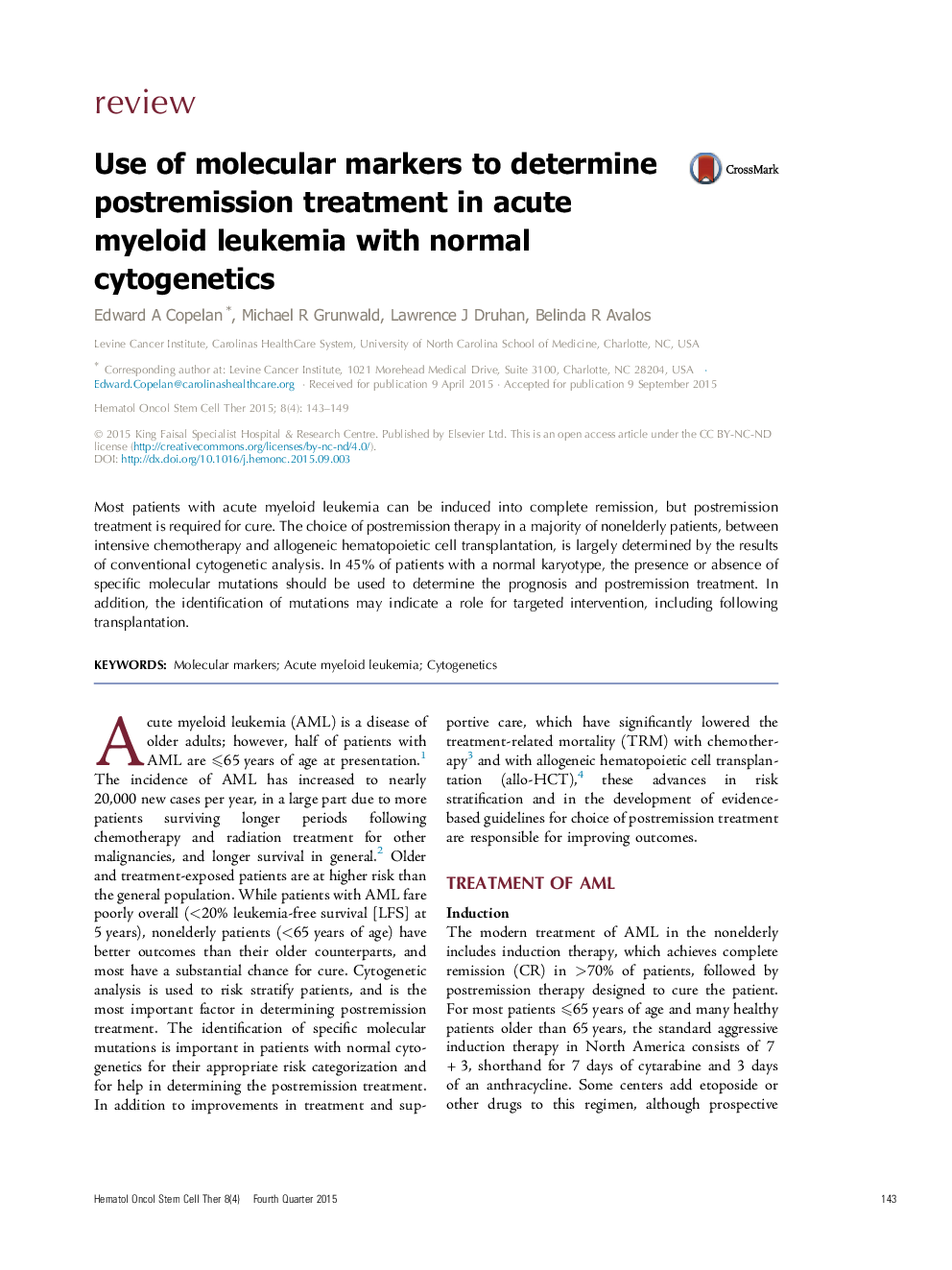| Article ID | Journal | Published Year | Pages | File Type |
|---|---|---|---|---|
| 2135606 | Hematology/Oncology and Stem Cell Therapy | 2015 | 7 Pages |
Abstract
Most patients with acute myeloid leukemia can be induced into complete remission, but postremission treatment is required for cure. The choice of postremission therapy in a majority of nonelderly patients, between intensive chemotherapy and allogeneic hematopoietic cell transplantation, is largely determined by the results of conventional cytogenetic analysis. In 45% of patients with a normal karyotype, the presence or absence of specific molecular mutations should be used to determine the prognosis and postremission treatment. In addition, the identification of mutations may indicate a role for targeted intervention, including following transplantation.
Related Topics
Life Sciences
Biochemistry, Genetics and Molecular Biology
Cancer Research
Authors
Edward A. Copelan, Michael R. Grunwald, Lawrence J. Druhan, Belinda R. Avalos,
